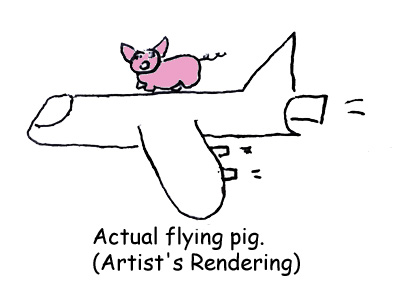
An important part of research writing is accurately expressing conditional, hypothetical, and factual ideas, but some writers, no matter how solid their research, stumble over use of modal verbs when it comes to expressing these ideas. In today’s post, I’ll provide a review of the forms and use of modal auxiliary verbs and conditional statements and some basic tips to help you use them effectively in research writing.
Verb Basics
First, some basics. A verb is a word that expresses an action or a state, and almost every sentence needs a verb to be complete. Verbs are often used by themselves in their simple forms, as in the sentence, “The bird flies.”
English verbs come in lots of different tenses and moods and often must be combined with auxiliary verbs (also known as helping verbs) to be complete. Be, do, and have are common auxiliary verbs used to express tense, such as, “The bird has been flying,” which uses two auxiliaries to form the present perfect continuous tense. Be, do, and have change form depending on the subject of the sentence. So, we see, “I have flown,” and, “The bird has flown.”
Get a free sample proofread and edit for your document.
Two professional proofreaders will proofread and edit your document.
Modal Verbs
Modal verbs, a subcategory of auxiliary verbs, are important when expressing the conditional mood, the mood used to express possibility, likelihood, necessity, and obligation and in if-then statements. Modal verbs include may/might, can/could, shall/should, and will/would and are used like this: “The bird might fly,” or, “The bird would fly.” Modal verbs do not change form depending on the subject. These verbs are actually present/past tense pairs, but as I’ll discuss later on, the tense of these verbs can be misleading at times.
Expressing Possibility
 In research writing, the difference between hypothetical and factual statements is critical; your choice of verb helps make the distinction. You state a fact using simple past, present, or future. Imagine a study of a newly discovered creature, the flying pig: “The study revealed that, in fact, some pigs fly.” You express a possibility using a modal verb, and which you choose depends on the likelihood of the statement:
In research writing, the difference between hypothetical and factual statements is critical; your choice of verb helps make the distinction. You state a fact using simple past, present, or future. Imagine a study of a newly discovered creature, the flying pig: “The study revealed that, in fact, some pigs fly.” You express a possibility using a modal verb, and which you choose depends on the likelihood of the statement:
May = Use to express possibility (also to express permission)
Might = Use to express remote possibility that is less likely
Will = Use to express certainty
Would = Use to express likelihood if a specified condition is met
Can = Use to express possibility (also to express ability)
Could = Use to express possibility if a specified condition is met
Shall = Use to express something will happen (also to express a promise); less commonly used in US English (will is more common)
Should/ought to = Use to express possibility if a condition is met (and to express obligation)
So, for example, with that sample sentence (“The study revealed that, in fact, some pigs fly”), will (“Some pigs will fly”) can be added to express certainty that an event will happen, and might (“Some pigs might fly”) can be added to express a possibility that an even will happen under certain conditions.
Reading such conditional statements, you probably find your mind starting to fill in an if statement, such as, “if they grew wings,” because modal verbs are generally used in contexts where conditions are either implied or stated, as is often the case in research writing.
Difficulties with Tense
Could, should, would, and might are all past tense forms, but they can all be used to refer to the future as well, which can be confusing. For example, “The study shows that pigs could fly if they had wings,” does not refer to an actual event in the past but to a possible event that might happen in the future. Perhaps because the line between past, present, and future is not black and white in conditional statements, errors crop up in terms of incorrect tense usage. Specifically, in if-then statements, which have two clauses (and two verbs), tense issues can plague you.
So, just remember, in if-then statements, the tense in the if clause should generally match the tense in the then clause:
If I arrive, he can leave.
If I arrived, he could leave.
If I come, he may leave.
If I came, he might leave.
Today’s post offered a basic review of the general use verbs and conditional statements. In a future post, I’ll get a bit more technical with the four types of conditional sentences and the use of tense in their construction.
Sarah P.
Get a free sample proofread and edit for your document.
Two professional proofreaders will proofread and edit your document.
Get a free sample proofread and edit for your document.
Two professional proofreaders will proofread and edit your document.
We will get your free sample back in three to six hours!